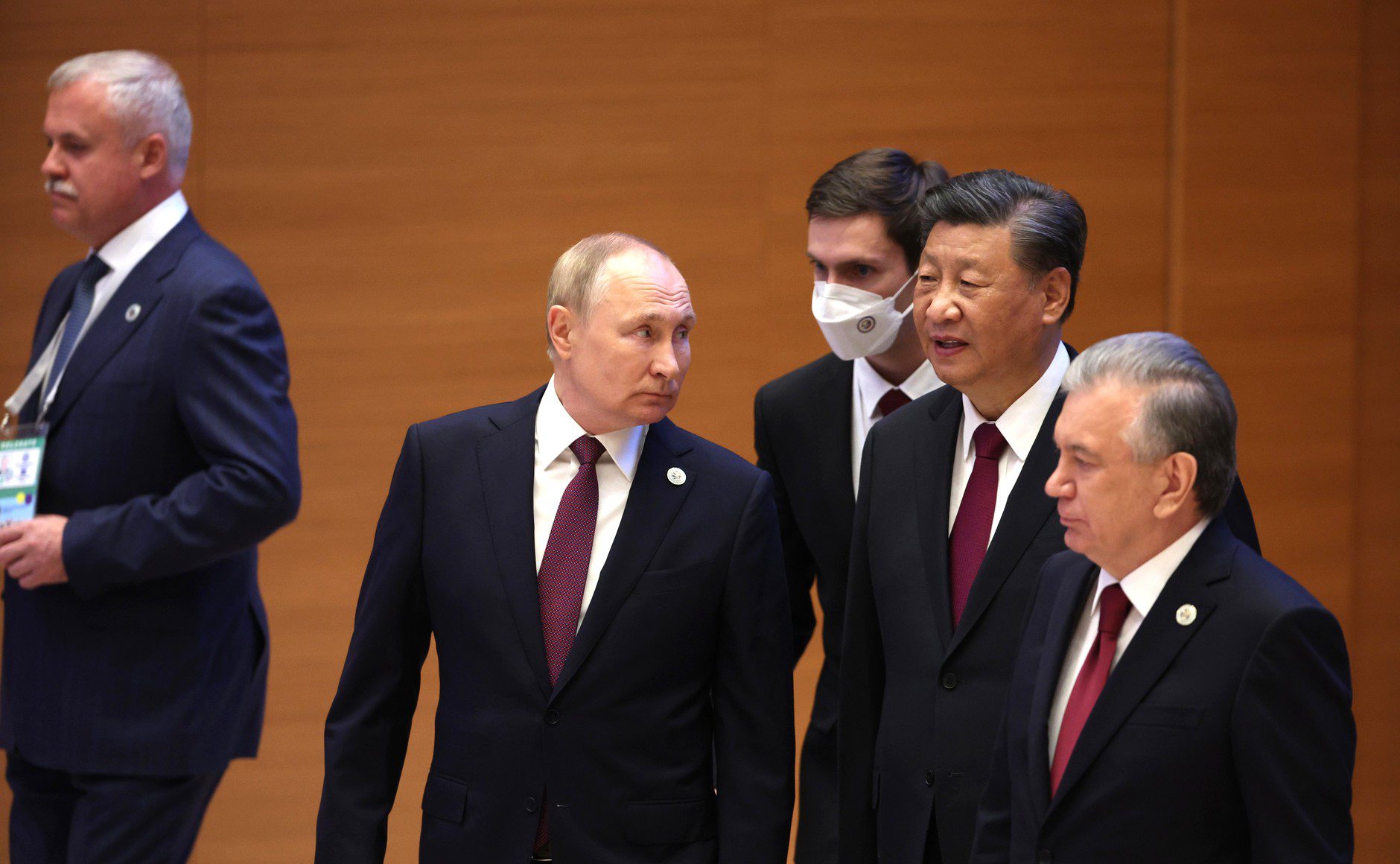
Against the backdrop of an increasingly assertive non-Western world, the Shanghai Cooperation Organization, which concluded its yearly summit on Friday, September 16th, is garnering increased attention. On the sidelines, Russian President Putin and Chinese President Xi Jinping met in the flesh on Thursday; their first since Russia’s invasion of Ukraine.
The last personal meeting between Xi and Putin dates back to early February, at the start of the Winter Olympics in Beijing, just three weeks before the start of what Russia still calls its ‘special military operation.’ For Xi, it is also his first trip abroad since the start of the corona pandemic at the end of 2019.
During their meeting in the Uzbek city of Samarkand, the two leaders stated their opposition to what they call the ‘unipolar world,’ which had been largely under U.S. dominion since the end of WWII.
It is no secret that the two nations are annoyed by U.S. foreign policy, a fact amply reflected at the start of their conversation, when television cameras and other press were briefly allowed in. The Russian president denounced U.S. attempts to create a unipolar world, shaped to conform to its own interests. Xi in turn promised that China will play its role as a superpower, along with Russia. “China, together with Russia, wants to bring stability to a chaotic world,” he said.
Putin sees an important role for the Moscow-Beijing partnership in “guaranteeing global and regional stability.” The Russian president also said he wants to further strengthen the Shanghai Cooperation Organization, SCO, which he and other member nations see as a credible alternative to regional and international organizations dominated by Western countries.
The Eurasian initiative is the largest and fastest growing regional organization in the world, representing approximately 40% of the world’s population. During the summit on Thursday, September 15th, the 9 members of SCO—which include Russia, China, and India—admitted Iran to their ranks.
For all their apparent unity, Russia’s contribution to our present chaotic moment is increasingly ruffling Beijing’s feathers. It is much bothered by the continued forestallment of the Ukrainian war’s end. This fact Putin recognized during their meeting, as he said that Russia very much appreciates China’s “balanced position” on the “Ukrainian crisis.” He understands that China had “questions and concerns” about the conflict. Putin told reporters the meeting had been “normal.”
As Xi still, perhaps begrudgingly, supports Putin in his venture, Putin in turn is expected to do the same when it comes to Taiwan. China considers the island a renegade province, which the West fears might fall prey to Chinese military aggression, taking its cue from Russia. Putin supports the one-China policy, which sees China and Taiwan as one country: he condemned the “provocations” by the U.S. and “its satellites” in the Taiwan Strait.
At the summit, Xi said the world had entered a new period of turmoil and that his partners, Putin and other Central Asian leaders, should prevent foreign powers from instigating ‘color revolutions,’ like the one that occurred in Ukraine in 2014 and the botched attempt in Kazakhstan earlier this year. Xi’s concern aligns with Putin’s, and places the blame on the U.S. The U.S. dismisses these claims as symptoms of Moscow’s paranoid nature. Xi also critiqued “zero-sum games” and “bloc politics” as unhelpful attempts to stop China’s rise as a superpower.
Apart from its emergence as a great power—an obvious concern to any hegemon—China’s alliance with Russia remains a thorn in the U.S.’ side. Following Xi and Putin’s meeting, White House spokesman John Kirby told CNN on Thursday that Washington does not believe anyone “should be on the sidelines,” and that indeed the “whole world should be lined up against what Mr. Putin is doing.” He added that “this is not the time for any kind of business-as-usual with Mr. Putin,” and that it remained to be seen to what extent China would back Russia in its military ventures.
Further evidence that support for Russia’s war, even amongst its partners, is not illimitable was shown on Friday, as another major player expressed its concern. Indian Prime Minister Narendra Modi told Putin that “today’s era is not an era of war,” a comment which prompted a surprised Putin to respond he would “do everything to stop this as soon as possible,” but that it might take some time, as Kyiv rejects negotiations from taking place. Ukrainian President Volodymyr Zelensky has maintained that he would reject any peace accord that would allow Russia to keep Ukrainian land.
